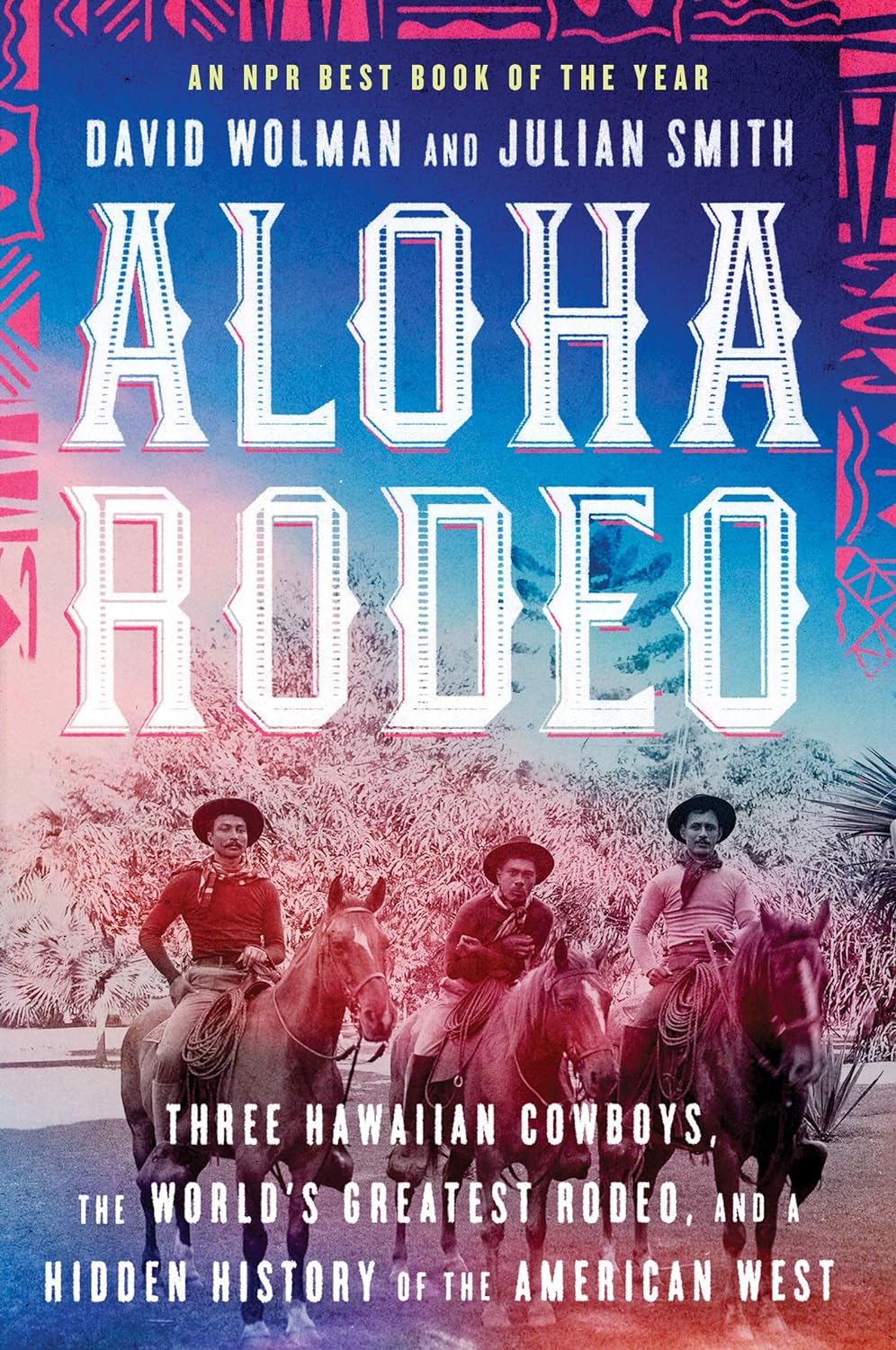More than just a pretty cover: Aloha Rodeo will take your adventures West…and I mean really West, to the Hawaiian Islands! Even though I’m known for judging and buying books by their covers (they just call to me, I don’t make the rules), I purchased David Wolman and Julian Smith’s book during a research mission on Paniolos, or Hawaiian Cowboys. The pretty cover is a bonus. This title is by far the most accessible book on our Pacific Ocean cowboys, which makes it an easy one-click buy on Amazon. But be warned, it is not pure paniolo – so saddle up for more history than you may have bargained for.
No history background? No problem. This is an entry-level history read that is easy to track and follow. The authors do not bombard you with dates that often plague readers and dubb history as a boring genre. Instead, they really try to merge facts with stories to create scenes of happenings. This title is by no stretch a fictional-esque read, but the chapters are friendly enough for the weekend history buff to track major themes and understand the nuances of this period of time. Kudos to the authors for emphasizing the creation of the paniolo culture during transformative historic time periods that really do make paniolos that much more impressive. Wait…maybe only historians care about that? It feels like everyone should care about dates (yes, men – you do need to remember at least one birthday or anniversary in your lifetime) because understanding when things happen is also just as important to know why they happened. This book will do that but without the textbook-feel. If biographical or narrative reads are more your thing, then this book can still earn a spot on your shelf. It is packed with stories about cowboys that will stick in your brain and one day become an awesome party-trick fact for you to share with others.
If you want a book that focuses only on the cowboys who swim with sharks (yes, it’s true. Listen to the complete history of Paniolos here) then this is not your book. But if you’re into more than just one type of cowboy (aren’t we all?) this book is probably going in your cart. The authors give readers a bonus history lesson on the development of Cheyenne Frontier Days Rodeo and the cowboys & western entertainers who founded the now World’s Largest Outdoor Rodeo. Don’t spoil all of your Cheyenne interest reading this one though because That Western Podcast is doing a deep dive on Cheyenne in the Spring – and yes, we will be using this book for some of the details and story tellings on that episode too. That should be a testament to how versatile this book is – paniolos and the literal Wild West all in one! When I say it outloud, the two topics seem like a bad Bumble match. But picture this: the book is one canvas with two sides. Even though one side is ocean, lava beds, and wild bullocks running through tropical dense brush and the other has dust, dirt, and Buffalo Bill – the middle of the canvas really does have room for both bucking horses and hibiscus. You’ll see.
Naturally, my historian antenna were up as I was reading. The sole purpose of these built-in antenna are to scan and detect personal opinion and conflicting facts and information. The radars didn’t sound off until I reached the epilogue, which is a really good sign for the general rodeo/western history fan. The authors claim there were only about 30 paniolo left at work in 2018 – and let me tell you, the way I gasped! Paniolo is as much a skill as it is a culture and a spirit. It is not fair to compare the working paniolo ranches of today with the past because of land usage laws, land owning/dwellings, political changes, and pure space. *Steps on pedestal:* Who are we to say paniolo must take place under certain conditions (like horseback, on large ranches) to be paniolo? We are not. Thankfully, most of us don’t read the epilogues so you may not be subject to the author’s blatant disregard for paniolo spirit living on today. In fact, paniolo spirit is older than Texas, which means if Texas spirit can exist without horses and cows, then so can paniolo. Paniolos never say die! Hawaii had no business being home to cows and cowboys, and yet cowboys found a way. And they’re here to stay.
Mahalo for reading! Make sure to listen to a more complete review and paniolo history on That Western Life Podcast.




